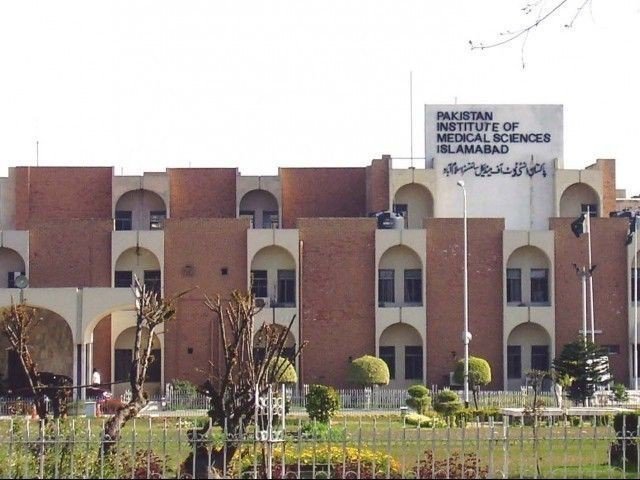
The incinerators along with a nursing cell, separate oncology ward and a renovated surgical ward were inaugurated at the Pakistan Institute of Medical Sciences (Pims) on Monday by the Federal Health Minister Aamer Kiani.
Previously, the hospital had to transport its hazardous, radioactive, genotoxic, chemical, infectious, pathological, and pharmaceutical waste to a landfill out of the city to dispose of it.
The incinerators, which have been approved by the Pakistan - Environment Protection Agency (Pak-EPA), will allow Pims to safely dispose of its waste without it having to leave the hospital premises and save the hospital a large sum of money in transportation fees.
Last year on January 28, an environmental tribunal had slapped the hospital with a million rupees fine for lacking adequate waste disposal mechanisms or an incinerator. Moreover, the tribunal had given Pims two months to install an incinerator and a further month to come up with a waste management plan.
Further, the tribunal had directed the Pims administration and the Capital Development Authority (CDA) to submit monthly reports with data about the waste generated and disposed of.
However, sources said that Pims failed to pay the fine nor implement the directions of the environmental tribunal. At this, the EPA filed an application before the tribunal for contempt of court against the hospital.
Subsequently, Pims started the process of installing an incinerator at the hospital last June at a cost of Rs51.2 million. Officials estimate that the installation of the incinerator will help the hospital save around Rs10 million a year.
Kiani said that they were working on improving the health services infrastructure of Pims in line with the government’s stated priorities. “Our government will support all future endeavours undertaken by the Pims management to further strengthen its services and infrastructure,” he said.
He hoped that installing the incinerators would not only help solve the waste disposal problem of the hospital but also lower a potential source for infections.
Further, he said that the incinerators will help lower the cost of disposing of waste but also protect the environment.
The health minister launched the nursing cell at the hospital and said that nurses were a vital component of patient services and noted that it was their vision is to strengthen their capacity.
“The Nursing Cell being inaugurated today will consolidate nursing administrative services in an organised way thus ensuring efficient management practices,” he stated, adding that they were building a nursing university in the federal capital at a cost of Rs10 billion.
A fully renovated surgical ward was also inaugurated.
“The Surgical Ward-1 is now very comfortable for patients, attendants, doctors, nurses and other ancillary staff,” he said, adding that they had increased the ward’s capacity from only 47 beds previously to 54 after renovations.
Moreover, he also inaugurated a ward dedicated to oncology and chemotherapy patients with 18 beds. The health minister added that a dedicated pharmacy for cardiology patients has been established apart from dedicated waiting areas which will facilitate patients as well as their attendants.
DHQ tender issued
Tenders worth Rs50 million have been issued for procuring necessary electro-medical equipment for the District Headquarters Hospital (DHQ) in Rawalpindi.
However, a project for upgrading and renovating the hospital building has been on hold due to the absence of the project’s chief engineer north.
The government had allocated Rs320 million for a project to procure new electro-medical equipment and renovating the building of DHQ.
While a tender for Rs50 million has been issued for procuring equipment for the DHQ, the remaining funds will be released in stages.
Moreover, the government has decided to re-appropriate Rs40 million from the funds issued for the Holy Family Hospital (HFH). The funds will now be used to procure medicines and other necessary items for the hospital.
Rawalpindi Medical University (RMU) Vice Chancellor Prof Dr Muhammad Umar said that they were trying to enhance the hospital’s capacity, renovate the building and procure additional equipment for the hospital.
He added that in light of a rising patient load, it had become imperative to enhance facilities at the allied hospitals.
WITH ADDITIONAL INPUT FROM JAMIL MIRZA IN RAWALPINDI
Published in The Express Tribune, February 12th, 2019.







1726722687-0/Express-Tribune-Web-(9)1726722687-0-270x192.webp)









COMMENTS
Comments are moderated and generally will be posted if they are on-topic and not abusive.
For more information, please see our Comments FAQ